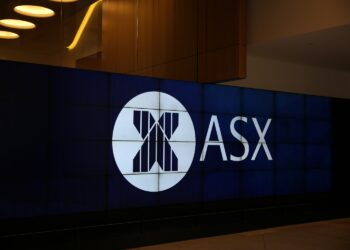During the major bank’s annual general meeting (AGM) in Sydney today (18 December), one shareholder asked the NAB chairman, who for a time was also acting CEO, to elaborate on ASIC’s announcement this week that it would be taking action against the bank for charging fees for no service.
“We have provided a significant amount, over a billion dollars, to remediate customers who would have been disadvantaged by paying for financial advice they may have not received or had been received with inadequate documentation,” Mr Chronican explained.
“My point is that the remediation of customers is something that is already underway. The action lodged yesterday (17 December) by ASIC really cuts more to the penalties they will be seeking for NAB not having adequately dealt with this issue in previous periods.”
While he admitted that it would be “difficult to know” what the outcome of ASIC’s action would be, Mr Chronican did point to ASIC’s claim that NAB made 10,000 potential breaches of various parts of the Corporations Act.
“Just to give you an example, of those 10,000, which relate to 1,300 customers effected, 8,706 of the breaches relate to just 450 customers and the total fees involved for those customers is around $1.3 million,” he said.
“So while it is possible to get a large penalty based on the law, the substance of what is being alleged is materially less.”
‘We got remuneration wrong’
During his opening address, the NAB chairman echoed the words of his predecessor Ken Henry by admitting that the group made a major error on executive pay.
Mr Chronican noted that over the last 12 months the royal commission demonstrated the gap between how the bank has been operating and how its customers, shareholders and the community expect it to operate.
“We will not let time dull the impact of the royal commission, nor will we gloss over its findings. NAB has lost a lot of trust and significant changes need to be made,” he said.
“The board understands that we got executive remuneration wrong last year. We are determined not to let you down again.”
An overwhelming 88 per cent of shareholders rejected NAB’s remuneration report at last year’s AGM, where Mr Henry admitted that the bank had failed its customers and shareholders in 2018.
Mr Henry said the board has come to the view “long before the royal commission” that its executive remuneration scheme was not right.
“It didn’t put enough focus on the management of non-financial risks and conduct matters. And, there was a risk that our so-called long-term incentive scheme might even be encouraging short-term thinking and value-destroying behaviours,” Mr Henry said.
At this week’s AGM, Mr Chronican said the bank has fundamentally changed the structure and assessment of its executive remuneration.
“We have made material enhancements to the information provided to the board regarding executive performance assessments, to apply greater rigour and oversight,” he said.
“As a first tangible step in this direction, significant amounts of unvested variable rewards from 2016, 2017 and 2018 were forfeited for the majority of the 2018 executive leadership team. We have also implemented a new remuneration framework which includes an appropriately hurdled long-term variable reward.”
For 2019 NAB determined there would be no short-term variable rewards and no fixed remuneration increases for current group executives.
“We are acutely aware of the continuing changes in the community and regulatory landscape, including APRA’s executive remuneration review, and we will continue to ensure our frameworks are appropriate and comply with all requirements,” Mr Chronican said.
“The board has acknowledged its own accountability for the issues we face. Directors had a 20 per cent reduction of their base fees in 2019.”







